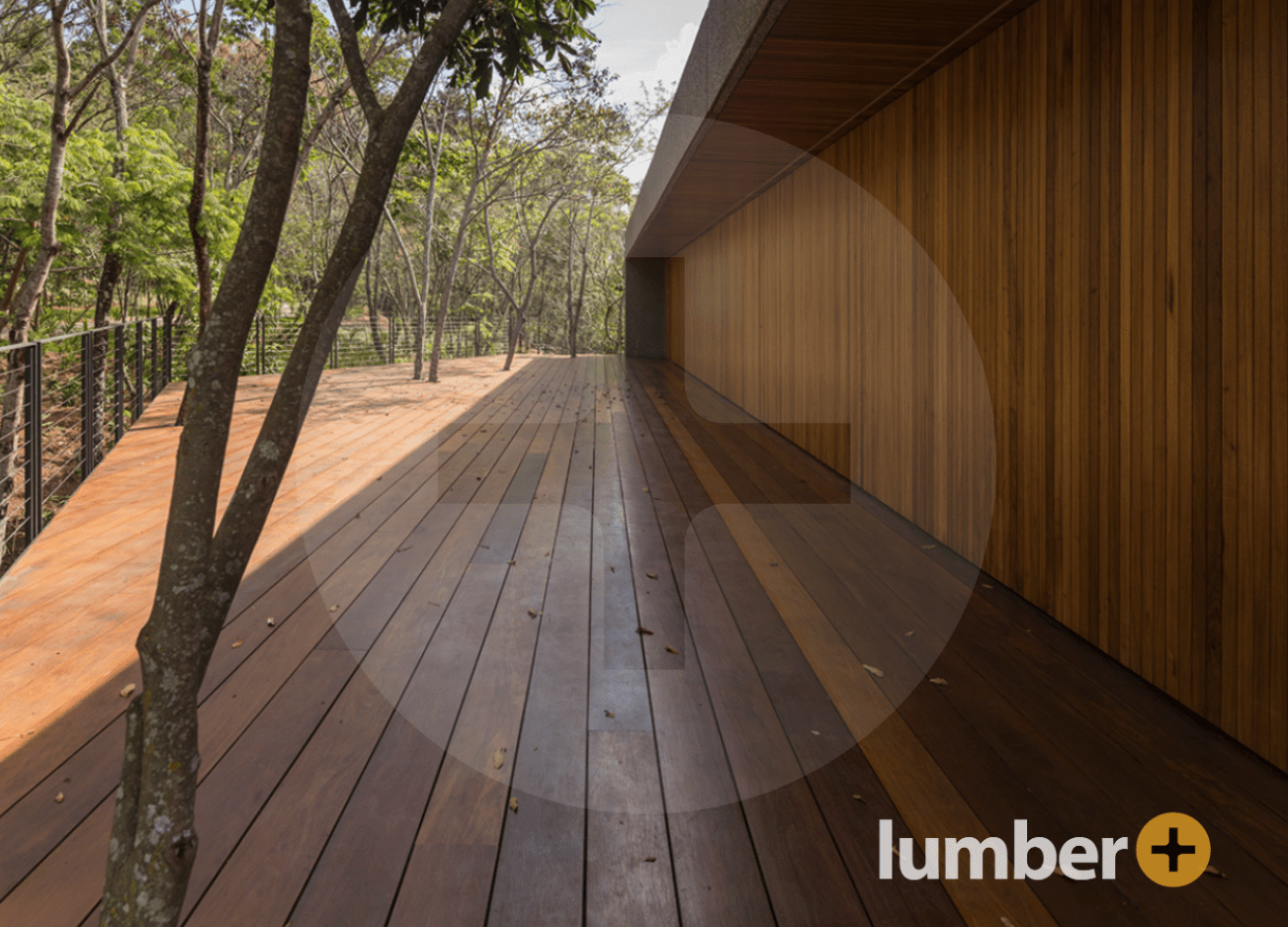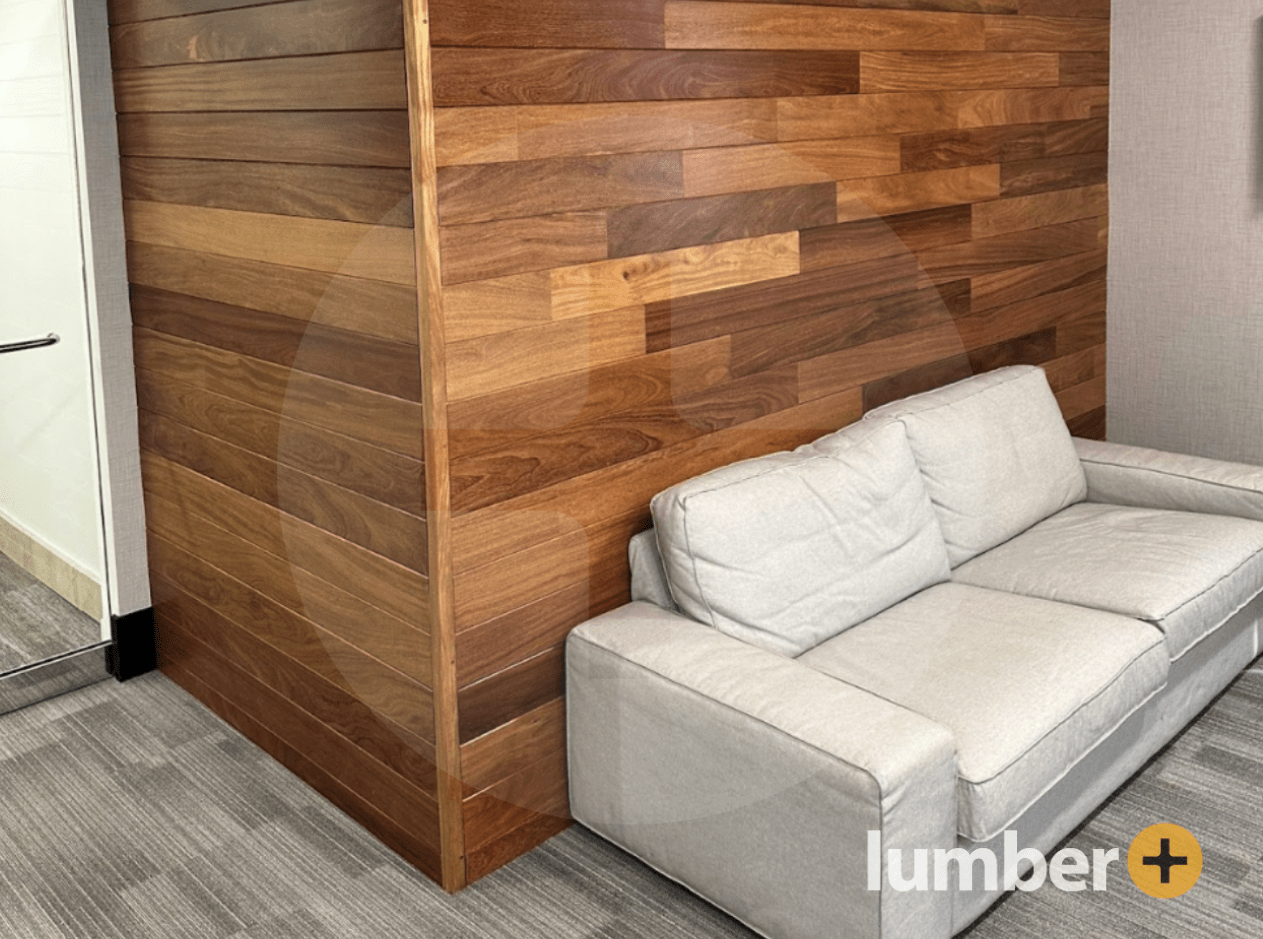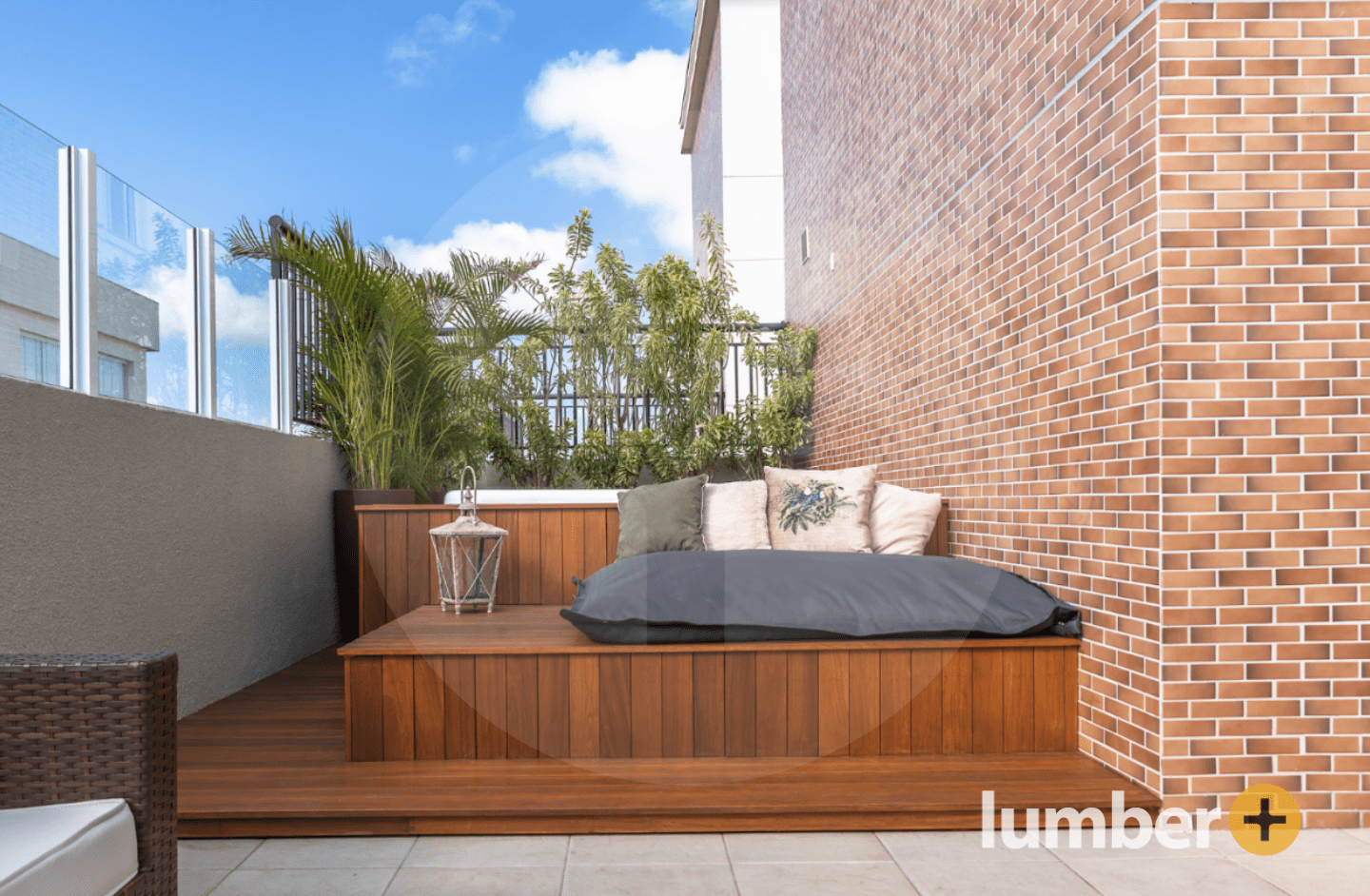Ipe wood, also known as Brazilian Walnut, is a dense hardwood from South America, particularly Brazil and Peru.
However, there’s a lot more to Ipe wood than this.
By the end of this article, you should be able to answer the question, “What is Ipe wood decking?” and a list of other questions as well.
Are you ready to get started?
What is Ipe Wood?
Ipe wood is a tropical hardwood with dark brown to olive hues that features a fine to medium texture and interlocked grain. It’s a type of wood with high-density and hardness that makes it one of the most resilient woods available. It’s ideal for demanding applications that require long-lasting materials.
Key Ipe Wood Characteristics
However, some characteristics of Ipe wood make Ipe wood different than other types. For instance:
Durability
As we mentioned before, Ipe wood has an incredibly high-density level, and because of this, is renowned for its long lifespan and capable of lasting up to 75 years with proper maintenance.
This makes it one of the longest-lasting woods available, so it is ideal for projects requiring extended durability.
Superior Strength
With a Janka hardness rating of 3,510 lbf, Ipe wood is not only the most dense but also one of the hardest woods on the market. This high level of hardness makes it highly resistant to scratches and heavy wear, making it suitable for high-traffic areas and demanding environments.
Excellent Fire Resistance
Featuring a Class-A fire rating, Ipe wood is comparable to steel and concrete in terms of fire resistance. This safety feature makes it a preferred choice for both residential and commercial projects where fire resistance is a critical concern.
Popular Uses of Ipe Wood

Because of its durability and strength, Ipe has started to be used for a variety of purposes. Here are some of the most common:
The Ultimate Decking Material
Ipe wood is widely used for decking in residential, commercial, and public projects. Its natural oils and dense fibers provide excellent resistance to mold and fungi, which helps it remain beautiful and functional for many years.
Rustic Charm in Siding and Cladding
For those seeking a natural, rustic look with minimal maintenance, Ipe wood is an ideal material for siding and cladding as well. Its resilience against weathering and insects ensures long-lasting beauty and functionality, whether enhancing the exterior of a modern home or a commercial building.
Long-Lasting Privacy with Ipe Fencing
Offering both style and durability, Ipe wood can also be used for fences to provide long-term solutions for privacy and security.
Its robust nature withstands harsh elements better than many other wood types, which makes it a reliable and attractive option for residential and commercial properties alike.
Design Ideas for Ipe Wood

Outdoor Living Spaces: Elegance and Durability
Incorporating Ipe wood into outdoor living spaces transforms them into luxurious, long-lasting environments.
Whether used for decks, pergolas, or poolside areas, Ipe wood offers a blend of durability and aesthetic appeal, and its natural resistance to weathering and insects helps ensure that these structures will remain beautiful and functional for many years.
Indoor Uses: High-End Applications
Ipe wood’s impressive durability and rich color make it a fantastic option for high-traffic indoor areas.
From custom furniture to elegant flooring, its hardness and longevity provide both beauty and practicality. Ipe wood flooring can handle the wear and tear of busy households or commercial spaces, while its luxurious appearance enhances interior decor.
Maintaining Ipe Wood
If you are looking to maintain your Ipe wood deck or floor, however, here are some factors to consider:
Routine Cleaning
For routine cleaning, start by cleaning the surface with a mild soap and water solution to remove dirt and debris, and then after washing, make sure that the wood is thoroughly dried in order to prevent moisture buildup.
However, for tougher stains, use specialized Ipe wood cleaners that are designed to gently remove grime without damaging the wood.
Oiling and Finishing
If you are oiling or finishing your Ipe deck, you should regularly apply high-quality oil finishes specifically formulated for hardwoods. Why? To protect and enhance the wood’s natural beauty.
These oils penetrate deeply into the wood to preserve its rich color and provide a protective barrier against the elements.
Protection from Elements
Protecting your Ipe wood from excessive moisture and direct sunlight is another thing you should consider—which can actually extend its life. You can use covers or awnings to shield the wood from harsh weather conditions and ensure proper ventilation is used to prevent issues like warping and fading.
Distinct Features of Ipe Wood

Comparisons with Other Woods
When compared to other hardwoods like cedar, composite decking, and softwoods, Ipe wood stands out for its superior durability, fire resistance, and minimal maintenance requirements. Its exceptional hardness and resistance to decay make it a preferred choice for both indoor and outdoor projects. Unlike composite decking, which can fade and wear over time, Ipe wood retains its natural beauty and strength, which makes it a long-lasting investment.
Unique Qualities
Ipe wood’s unique properties, such as its high density and natural oils, set it apart from other materials.
These characteristics provide exceptional resistance to mold, fungi, and insects by ensuring that Ipe wood structures remain robust and attractive for years. Its Class-A fire rating adds an extra layer of safety, which makes it suitable for areas prone to wildfires or other fire hazards.
Diverse Applications of Ipe Wood Across Industries
Because of Ipe wood’s hardness and density, it has made its way into a large variety of industries. For example:
Commercial
It is frequently used in commercial projects—such as iconic boardwalks and large commercial decks—where it can handle heavy foot traffic and challenging environmental conditions. This makes Ipe wood a reliable choice for public spaces that require materials capable of withstanding constant use.
Industrial
In industrial settings, Ipe wood excels in applications that require heavy-duty flooring and robust exterior structures. Its strength and resistance to wear and tear provide longevity, which makes it a valuable material for factories and other demanding environments where performance and reliability are essential.
Residential
Homeowners appreciate Ipe wood for its combination of beauty and functionality. It is perfect for home decks, patios, and fencing, and adds a luxurious touch to any outdoor space. Inside the home, Ipe wood’s durability and sophisticated appearance make it an excellent choice for flooring and custom furniture by offering both aesthetic and practical benefits.
How is Ipe Wood Made
Now that you know what Ipe wood is—and its many benefits, uses, and industry applications—let’s take a quick look at how Ipe wood is made:
Ethical Harvesting Practices
Ipe wood is harvested from sustainably managed forests to ensure that its extraction does not adversely impact the environment. This responsible approach is certified by organizations such as the Forest Stewardship Council (FSC), which guarantees that the wood comes from forests that provide environmental, social, and economic benefits.
These certifications make Ipe wood an eco-friendly choice for construction projects by ensuring that every piece of lumber contributes positively to the environment and society.
Processing and Kiln Drying
After harvesting, Ipe wood undergoes a meticulous processing and kiln drying process that reduces its moisture and enhances its stability.
It’s a preparation process that involves removing any imperfections and making sure the wood is free from deformities. Kiln drying also helps prevent shrinkage and warp to make the wood more suitable for construction purposes.
Upgrade Your Projects with Lumber Plus Ipe Wood

If you’re interested in using Ipe wood for your new project, you should purchase products from a sustainable, high-quality Ipe wood provider.
Choosing Ipe wood from Lumber Plus does just that by providing top-quality materials for your construction needs.
Our extensive inventory and sustainable sourcing practices make us the best choice for Ipe wood decking and other applications.
Contact us today for more information!






